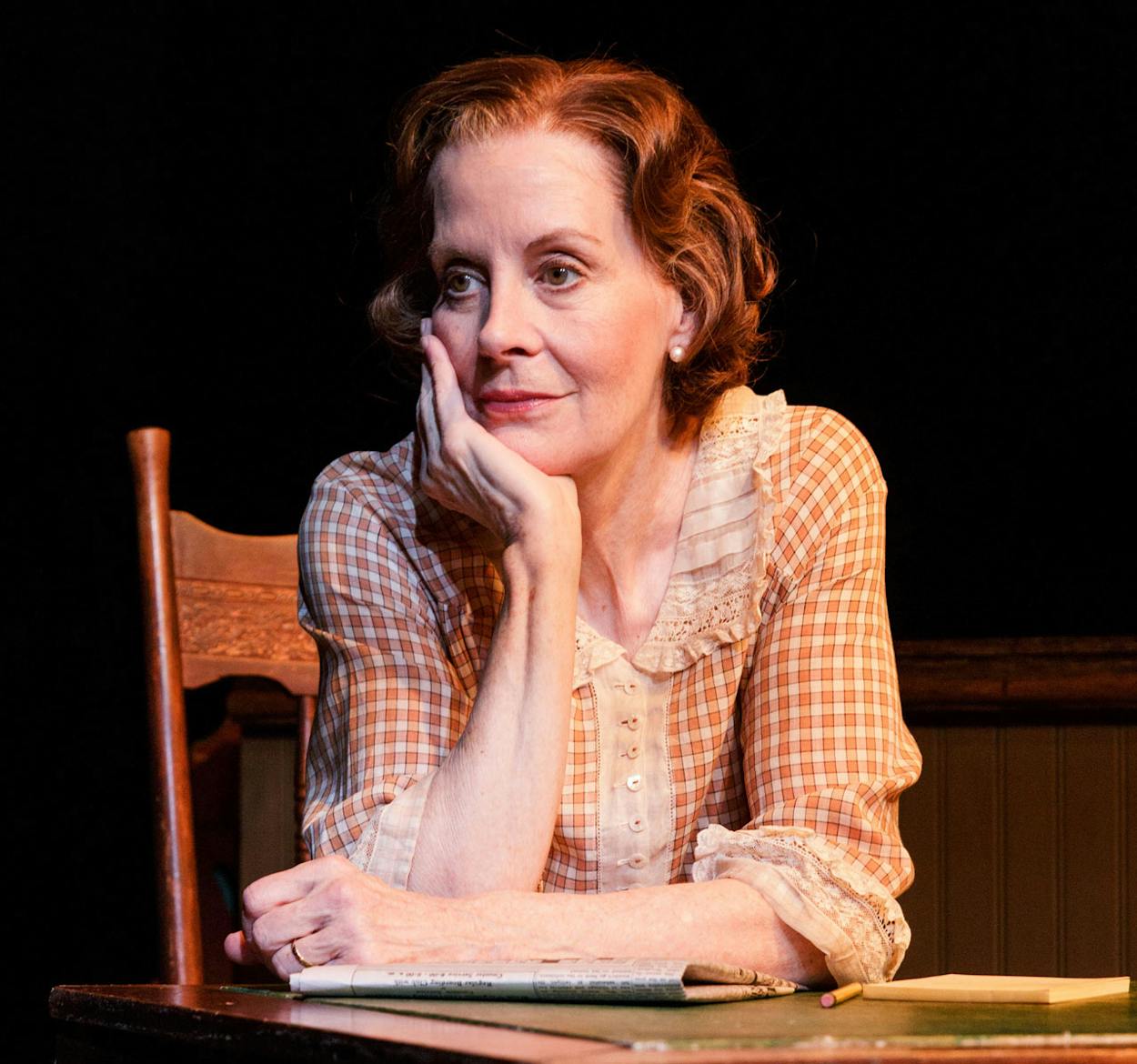Like a number of great playwrights—including Chekhov, to whom he’s often been compared—Wharton-born Horton Foote specialized in writing about time: its inexorable passage; its unforgiving brutality; how we desperately wish for time back, so we might have the chance to correct the missteps that define our adult lives.
Curious, then, that time has treated Foote—who died in 2009, and who this year would have turned 100—so generously.
Despite having won an Oscar for screenplay adaptation of To Kill a Mockingbird in 1962, Foote was all but washed up as a playwright by the mid-sixties. His elegiac tales of small-town Texas life, presumably, were just too far out of step with the confrontational, much grander-scaled work of contemporaries like Edward Albee (“Who’s Afraid of Virginia Woolf?”). Who wants a whispery tale of Texans pining for their lost youth when you can have actors screaming, shouting, and cursing at one another for two hours?
It wasn’t until a second Oscar, for 1983’s Tender Mercies, and widespread critical acclaim for the 1985 film version of his play “The Trip to Bountiful,” that theater companies in New York began regularly staging his work. Even then, it wasn’t until the Signature Theatre Company devoted an entire season to his work in 1995 that Foote—by then nearly eighty—belatedly came to be regarded as a major playwright.
And what’s most remarkable about the passage of time as relates to Foote’s work? It has allowed us to see the playwright’s work not as flea circus melodrama, but instead as a brand of plainspoken universality that transcends both geographical and generational boundaries.
As Hallie Foote, the playwright’s daughter and steward of his literary estate, noted to me in a recent interview, “He explores big themes. He’s not just this regional Texas writer.”
The Foote renaissance continues this month in New York City, where Primary Stages—an off-Broadway company that has staged numerous Foote works over the years—is mounting a revival of Foote’s “The Roads to Home,” at the Cherry Lane Theatre. The production (directed by Michael Wilson, and starring Foote’s daughter, Hallie) does exquisite justice to Foote’s prose; it’s simple, stirring, and sneakily devastating.
A collection of three interconnected one-act plays, “The Roads to Home” also speaks unexpected volumes about our present, deeply anxious cultural moment. It’s a story of people displaced by circumstance (economic, personal, and otherwise) trying to escape back to the safe space of home. A space, the playwright quietly and disturbingly suggests, may not be so safe anymore.
In the first act, we meet Mabel (played by Hallie, a frequent interpreter of her father’s works), a Houston housewife who each day plays hostess to a mentally troubled young woman Annie (Rebecca Brooksher) from her hometown of Harrison (a fictional town based on Wharton). Act 2 finds Mabel trying to aid her neighbor Vonnie (Harriet Harris), whose husband has started an affair with another woman (a woman, it’s worth noting, he met on a train to that seemingly innocent idyll of Harrison). Annie returns in Act 3, set four years later, where we find her outside of an Austin dancehall (or, what seems like a dancehall), heartbreakingly losing all grip on time, and all connection to reality.
Foote completed “The Roads to Home” in the early eighties, when he probably couldn’t have imagined that its central concerns—about the population shift to American urban centers; about the secondary role women are so often forced to play in their own lives; about the way our country addresses mental health issues—would still be at the forefront of the national conversation.
The playwright did, however, seem to know that you didn’t have to be a Texan to understand the people in his plays, just as you don’t have to be a member of the landed gentry in Moscow to be able to pick up what Chekhov was putting down in “The Seagull.” As Foote told the critic Frank Rich in a 1996 interview, “Of course, New York is a series of small towns, isn’t it? … certain experiences happen in cities and small towns and they’re very similar really. The outer coating may be different, but the human heart is almost the same.”
You have until November 6 to get to New York to see “The Roads to Home.” (Primary Stages’s annual fundraising gala, held this year on October 17, will also honor Foote, with scheduled performances and tributes from Estelle Parsons, Molly Ringwald, and Elizabeth Ashley, among others.) But if an immediate trip to New York isn’t in the offing, take comfort knowing that Foote’s work is clearly in no danger of fading into obscurity.
Early 2017 alone will bring professional regional theater productions of “The Trip to Bountiful” in Maine and Florida and “Dividing the Estate” in Louisiana. According to Hallie Foote, she has been in discussions with the Alley Theater in Houston to stage Foote’s magnum opus, the nine-hour “The Orphan’s Home Cycle,” and—following the success of the Cicely Tyson-starring The Trip to Bountiful in 2013—we may see another major Foote revival on Broadway in the 2016-17 season. Also in development is a musical based on one of Foote’s play (Hallie couldn’t say which), to be co-written by another of Foote’s children, Daisy Brooks Foote. As if all that’s not enough for Foote fans, Hallie Foote notes that we may also see “The Orphan’s Home Cycle” as a limited television series. (“That’s my long winded way of way of saying that my father will be around forever,” she says.)
It may have taken a century, but Texas’ great bard of time has at long last proven himself timeless.






